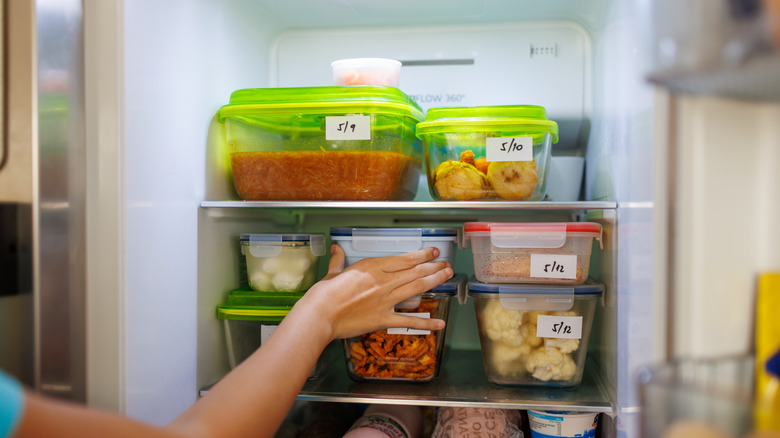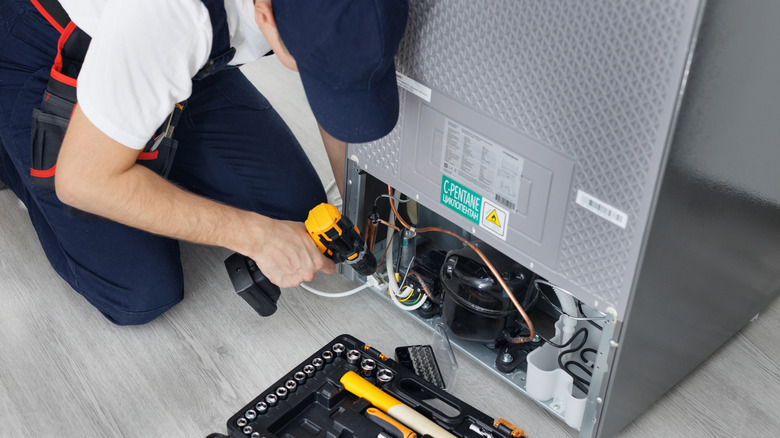The Reason You May Not Want To Put Hot Food Away In The Refrigerator Too Quickly
Your refrigerator is one appliance that you really don't want to do without. No more chill drinks or storing leftover pizzas for tomorrow. Unfortunately, these appliances are often taken for granted until you start noticing some critical signs that it might be time to replace your fridge. If you really want to extend your fridge's lifespan, you need to avoid certain mistakes that impede its performance. One very common kitchen mistake a lot of people make is putting hot food away in the refrigerator too quickly. You've probably heard that putting hot food in your refrigerator is a bad idea (which isn't 100% true, by the way!), but it's not great for your refrigerator as well, as it can damage your shelves and compressor.
If you want to prevent these issues, simply follow the two-stage cooling method: cool the food from 140 degrees Fahrenheit to 70 degrees Fahrenheit in two hours, before refrigerating it from 70 degrees Fahrenheit to 40 degrees Fahrenheit within four hours. With this method, you get the best results for both your food and your refrigerator. You can also transfer food cooked in deep pots to a few shallow containers before putting them in the fridge. These shallow containers would cause faster heat dissipation due to an increased surface area, making the food cool faster. This way, you can put your food in earlier without worrying about damage to your fridge.
How hot food can damage your refrigerator
But how exactly does hot food affect your fridge? Well, if your refrigerator has glass shelves, then you should never place hot food on them. This is to prevent thermal shock. Due to the heat of the food and the rapid cooling of the refrigerator, your glass shelves might break because the area where you placed the hot food will be expanding unevenly while the other parts of the shelf are contracting in the cold. The glass shards from the shattered shelf can also pose a safety hazard for you to deal with.
The next thing to note is that your fridge is regulated by a thermostat. This detects temperature changes and switches your fridge's compressor on or off. With hot food in your fridge, you'll increase the temperature in the compartment, forcing the compressor to turn on prematurely. It would also take some time to cool the hot food to your desired temperature, therefore causing more strain to the compressor and reducing its lifespan. This is unfortunate because your fridge compressor is one of the most expensive appliance parts to replace in your home. This longer cooling cycle also causes the compressor to use more energy, leading to higher electricity bills.

